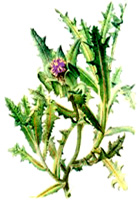What can I do to protect myself from catching influenza A(H1N1)?
The main route of transmission of the new influenza A(H1N1) virus seems to be similar to seasonal influenza, via droplets that are expelled by speaking, sneezing or coughing. You can prevent getting infected by avoiding close contact with people who show influenza-like symptoms (trying to maintain a distance of about 1 metre if possible) and taking the following measures:
avoid touching your mouth and nose;
clean hands thoroughly with soap and water, or cleanse them with an alcohol-based hand rub on a regular basis (especially if touching the mouth and nose, or surfaces that are potentially contaminated);
avoid close contact with people who might be ill;
reduce the time spent in crowded settings if possible;
improve airflow in your living space by opening windows;
practise good health habits including adequate sleep, eating nutritious food, and keeping physically active.
What about using a mask? What does WHO recommend?
If you are not sick you do not have to wear a mask.
If you are caring for a sick person, you can wear a mask when you are in close contact with the ill person and dispose of it immediately after contact, and cleanse your hands thoroughly afterwards.
When and how to use a mask?
If you are sick and must travel or be around others, cover your mouth and nose.
Using a mask correctly in all situations is essential. Incorrect use actually increases the chance of spreading infection.
How do I know if I have influenza A(H1N1)?
You will not be able to tell the difference between seasonal flu and influenza A(H1N1) without medical help. Typical symptoms to watch for are similar to seasonal viruses and include fever, cough, headache, body aches, sore throat and runny nose. Only your medical practitioner and local health authority can confirm a case of influenza A(H1N1).
What should I do if I think I have the illness?
If you feel unwell, have high fever, cough or sore throat:
stay at home and keep away from work, school or crowds;
rest and take plenty of fluids;
cover your nose and mouth when coughing and sneezing and, if using tissues, make sure you dispose of them carefully. Clean your hands immediately after with soap and water or cleanse them with an alcohol-based hand rub;
if you do not have a tissue close by when you cough or sneeze, cover your mouth as much as possible with the crook of your elbow;
use a mask to help you contain the spread of droplets when you are around others, but be sure to do so correctly;
inform family and friends about your illness and try to avoid contact with other people;
If possible, contact a health professional before traveling to a health facility to discuss whether a medical examination is necessary.
Should I take an antiviral now just in case I catch the new virus?
No. You should only take an antiviral, such as oseltamivir or zanamivir, if your health care provider advises you to do so. Individuals should not buy medicines to prevent or fight this new influenza without a prescription, and they should exercise caution in buying antivirals over the Internet.
Warning on purchase of antivirals without a prescription [pdf 35kb]
What about breastfeeding? Should I stop if I am ill?
No, not unless your health care provider advises it. Studies on other influenza infections show that breastfeeding is most likely protective for babies - it passes on helpful maternal immunities and lowers the risk of respiratory disease. Breastfeeding provides the best overall nutrition for babies and increases their defense factors to fight illness.
When should someone seek medical care?
A person should seek medical care if they experience shortness of breath or difficulty breathing, or if a fever continues more than three days. For parents with a young child who is ill, seek medical care if a child has fast or labored breathing, continuing fever or convulsions (seizures).
Supportive care at home - resting, drinking plenty of fluids and using a pain reliever for aches - is adequate for recovery in most cases. (A non-aspirin pain reliever should be used by children and young adults because of the risk of Reye's syndrome.)
Should I go to work if I have the flu but am feeling OK?
No. Whether you have influenza A(H1N1) or a seasonal influenza, you should stay home and away from work through the duration of your symptoms. This is a precaution that can protect your work colleagues and others.
Can I travel?
If you are feeling unwell or have symptoms of influenza, you should not travel. If you have any doubts about your health, you should check with your health care provider.
ما الذي يمكنني فعله؟
18 أيار/مايو 2009
ما الذي يمكنني فعله لأحمي نفسي من الإصابة بالأنفلونزا من النمط A/H1N1؟
يبدو أنّ الطريق الرئيسي لسراية الفيروس الجديد A/H1N1 يضاهي طريق سراية فيروس الأنفلونزا الموسمية وهو يتمثّل في الرذاذ الذي يتطاير عند الكلام أو العطاس أو السعال. ويمكنك توقي الإصابة بالعدوى بتجنّب مخالطة الأشخاص الذين تظهر عليهم أعراض شبيه بأعراض الأنفلونزا عن كثب (محاولة الحفاظ على مسافة تناهز متراً واحداً إذا أمكن ذلك) واتخاذ التدابير التالية:
تجنّب لمس الفم والأنف؛
غسل الأيدي جيداً بالماء والصابون أو تكرار تنظيفها بمحلول كحولي (خصوصاً بعد لمس الفم أو الأنف أو مسطّحات يُحتمل تلوّثها بالفيروس)؛
تجنّب مخالطة الحالات المشتبه فيها عن كثب؛
الحد، قدر الإمكان، من الفترة التي تُقضى في الأماكن الحاشدة؛
تحسين تدفق الهواء في المساكن بفتح النوافذ؛ اتياع الممارسات الصحية بما في ذلك قضاء فترة نوم كافية وتناول أطعمة مغذية والحفاظ على النشاط البدني.
ماذا عن استخدام الأقنعة؟ ما هي توصيات المنظمة في هذا الشأن؟
لا يجب عليك ارتداء قناع إذا لم تكن مريضاً.
أمّا إذا كنت تعتني بشخص مريض فيمكن لك ارتداء قناع إذا كنت تخالطه عن كثب ويجب عليك التخلّص منه فوراً بعد استعماله وتنظيف يديك جيّداً بعد ذلك.
وإذا كنت مريضاً واضطررت إلى السفر أو الالتقاء بأشخاص آخرين فعليك بتغطية فمك وأنفك.
ومن الضروري استخدام الأقنعة بشكل صحيح في جميع الحالات. ذلك أنّ استخدامها بطرق خاطئة يزيد من احتمال انتشار العدوى.
:: نصائح بشأن استخدام الناس للأقنعة إبّان فاشيات الأنفلونزا من النمط A/H1N1
كيف أدرك أنّني مصاب بالأنفلونزا من النمط A/H1N1؟
لن يمكنك التمييز بين الأنفلونزا الموسمية والأنفلونزا من النمط A/H1N1 دون مساعدة طبية. ذلك أنّ الأعراض النمطية التي ينبغي لك مراقبتها تضاهي الأعراض الناجمة عن فيروسات الأنفلونزا الموسمية ومنها الحمى والسعال والصداع والآلام العضلية والتهاب الحلق وسيلان الأنف. ولا يمكن إلاّ لطبيبك المعالج والسلطة الصحية المحلية تأكيد الإصابة بالأنفلونزا من النمط A/H1N1.
ما الذي ينبغي أن أفعله إذا ظننت أنني من ضحايا هذا المرض؟
إذا شعرت بوعكة وبإنك محموم وأنك تسعل وأن حلقك يوجعك:
عليك أن تظل في البيت وألا تذهب إلى عملك أو إلى المدرسة أو الاختلاط بالجموع الغفيرة.
عليك أن تستريح وأن تتناول الكثير من السوائل.
غط فمك وأنفك بالمناديل الورقية عندما تسعل أو تعطس وتخلص من المناديل الورقية المستخدمة على النحو المناسب.
اغسل يديك بالصابون والماء ملياً وأكثر من ذلك خاصة بعد السعال أو العطاس.
أخبر الأسرة والأصدقاء بأنك مريض وحاول أن تتجنب المخالطة اللصيقة للناس.
ما الذي ينبغي أن أفعله إذا احتجت إلى عناية طبية؟
اتصل بطبيبك أو بمن يقدم الرعاية الصحية لك قبل الذهاب إلى المرفق الصحي، وأبلغ من يهمه الأمر بالأعراض التي تظهر عليك. عليك أن تشرح لهؤلاء الأسباب التي تدفعك إلى الاعتقاد بأنك مصاب بالأنفلونزا الناجمة عـن الفيروس مـن النمط A/H1N1 كأن تكون قد سافرت منذ مدة يسيرة إلى بلد تفشى فيه المرض بين الآدميين. عليك أن تتبع النصائح التي تسدى إليك.
إذا تعذر عليك الاتصال مسبقاً بالجهة التي تقدم لك خدمات الرعاية الصحية عليك أن تعلن عن شكك في إصابتك بالعدوى حالما تصل إلى المرفق الصحي.
غط أنفك وفمك أثناء تنقلك.
هل ينبغي لي الذهاب إلى العمل إذا كنت مصاباً بالأنفلونزا دون الشعور بتوعّك؟
لا. ينبغي لك، سواءً كنت مصاباً بالأنفلونزا من النمط A/H1N1 أو الأنفلونزا الموسمية، البقاء في البيت بعيداً عن مكان العمل طيلة فترة الأعراض. ويدخل ذلك في إطار التدابير الاحتياطية الكفيلة بحماية زملائك في العمل وغيرها من الناس.
هل يمكنني السفر؟
لا ينبغي لك السفر إذا كنت متوعّكاً أو مصاباً بأعراض الأنفلونزا. وإذا انتابتك أيّ شكوك بشأن حالتك الصحية ينبغي لك التحقّق من ذلك من الجهة التي اعتدت التماس خدمات الرعاية الصحية منها.
:: السفــر
ماذا عن الرضاعة الطبيعية؟ هل ينبغي لي وقفها إذا أُصبت بالمرض؟
لا، إلاّ إذا نصحكي طبيبكي المعالج بذلك. ذلك أنّ الدراسات التي أُجريت في مجال إصابات الأنفلونزا تظهر أنّ الرضاعة الطبيعية توفر، على الأرجح، حماية للرضّع- فهي تمكّن من نقل العناصر المناعية المساعدة من الأم إلى طفلها ومن تخفيض مخاطر الإصابة بالأمراض التنفسية. كما توفر تلك الرضاعة أفضل أنواع التغذية للرضّع عموماً وتزيد من عوامل الحماية التي تلزمهم لمكافحة الأمراض.
هل ينبغي لي أخذ مضاد للفيروسات لأحمي نفسي في حال ما إذا أُصبت بالفيروس الجديد؟
لا. لا ينبغي لك أخذ أيّ مضاد للفيروسات، مثل الأوسيلتاميفير أو الزاناميفير، إلاّ إذا نصحك من يقدم لك خدمات الرعاية الصحية بالقيام بذلك. ولا ينبغي للأفراد شراء أدوية لتوقي أو مكافحة هذا الفيروس الجديد دون وصفة طبية، وينبغي لهم توخي الحذر لدى شراء مضادات الفيروسات عبر الإنترنت.
Subscribe to:
Post Comments (Atom)


No comments:
Post a Comment